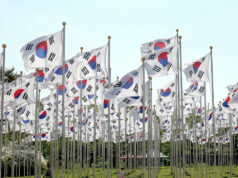Something I find really hard to understand is the readiness of some Filipinos to trust a foreign institution rather than their own. This despite evidence of the better effectiveness and clarity of our local system.
All the more when Philippine law, actually like most domestic laws, is ranged against international law.
In matters of human rights, I’d bet my money on the Philippine legal system rather than the ambiguity that is international humanitarian law. Decades of local jurisprudence and jurists honed in that jurisprudence would always trump — at least as of this time — international law.
Then there is sovereignty, for which the operativeness of every international law – even those with misguidedly “progressive” ambitions – is conditioned upon.
Such is the backdrop against which the International Criminal Court’s “preliminary examination” of Philippine President Rodrigo Duterte is held.
And, right now, the 72-year-old Bedan law graduate and former city prosecutor is outsmarting the human rights lawyers from the “prestigious” law schools with fancy foreign law postgrads.
The “preliminary examination” itself, discretionary on the part of the ICC Prosecutor and done “of all communications and situations that come to its attention”, could take years. Even decades.
In truth, there is no deadline with which the ICC Prosecutor is supposed to work with. A cursory examination of ongoing preliminary examinations reveals those beginning from way 2002 (Colombia), 2003 (Afghanistan), 2003 (Iraq), and 2006 (Venezuela).
On the preliminary examination on war crimes in Palestine (2014), Fatou Bensouda can’t even commit to wrap up the examination by 2021 (the end of her term as ICC chief prosecutor). Or even in 10 years.
The Philippine matter itself was triggered by a 77-page complaint (copy of which can be found easily online). Many of the allegations are of Duterte’s time as mayor. Note that, for the Philippines, the ICC’s jurisdiction is only for crimes committed from November 2011 onwards.
But even with regard to the allegations pertaining to Duterte’s presidency, the complaint still cannot be said to give rise to a case that the ICC can properly take cognizance of.
For one, the ICC, like any criminal court, only convicts an accused in the presence of “proof beyond reasonable doubt.” The Rome Statute itself, like any criminal law, has to be strictly interpreted in favor of the accused.

The point is this: if Duterte’s critics are confident that the complaint filed in the ICC can withstand proper judicial scrutiny, then why not just file the case here? Impeachment first perhaps, possible criminal case after, based on the Constitution, the Revised Penal Code, or RA 9851.
The ICC is designed to be only complementary to our legal system. Philippine laws take precedence.
Nevertheless, even assuming that the facts are true and indeed at least warrant a “reasonable basis for an investigation” and assuming further that every single Philippine court or institution are “unwilling or unable genuinely to carry out the investigation or prosecution” of President Duterte, still no crime under the Rome Statute could be said to have been violated.
The closest one could reasonably argue is “crimes against humanity.”
However, two things: first is that ICC Elements of Crimes require Article 7 to “be strictly construed” as “among the most serious crimes of concern to the international community as a whole.”
Hence and secondly, the nature of “crimes against humanity” must be properly determined.
Joel Arzaga, a senior student of the UA&P School of Law and Governance, ably defended his soon to be finalized juris doctor thesis (“Extrajudicial Killings Under The Duterte Administration: A Crime Against Humanity”) and made the following salient point: Duterte’s acts do not constitute a crime against humanity, at least as currently understood under international law.
Based on his survey of past ICC cases involving crimes against humanity (notably Mbarushimana, Ngudjolo Chui, Katanga, and Bemba Gombo), Arzaga found the absence of actual “state policy, express or implied, to commit murder, which has for its primary object any civilian population within the territorial jurisdiction of the Philippines” and that there is no “particular and identifiable civilian population that is the primary object of the attack.” Both are crucial elements for a conviction under crimes against humanity.
To bolster the foregoing analysis, Arzaga leads us to a further finding he made: this time of other countries’ “war on drugs,” from Colombia (allegedly 215,000 dead) to Mexico (allegedly 120,000 dead), which — despite the appalling body counts — resulted in no indictment by the ICC.
Perhaps emblematic of the inanity of the times we are in that this caveat has become necessary: definitely Arzaga and I are against any wrongdoing. If a crime was committed, let justice be done.
But since we’re all so zealous of our sovereignty, then why rely on foreigners to settle an issue between Filipinos?
And if indeed President Duterte violated the rule of law, his critics would be equally wrong to do the same, no matter how loud they express their self-righteousness.
Jemy Gatdula is a Senior Fellow of the Philippine Council for Foreign Relations and a Philippine Judicial Academy law lecturer for constitutional philosophy and jurisprudence.
Twitter @jemygatdula



